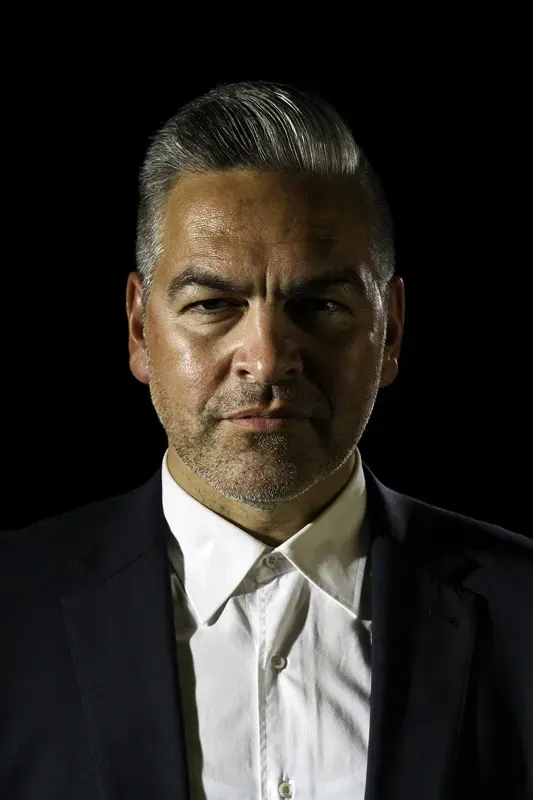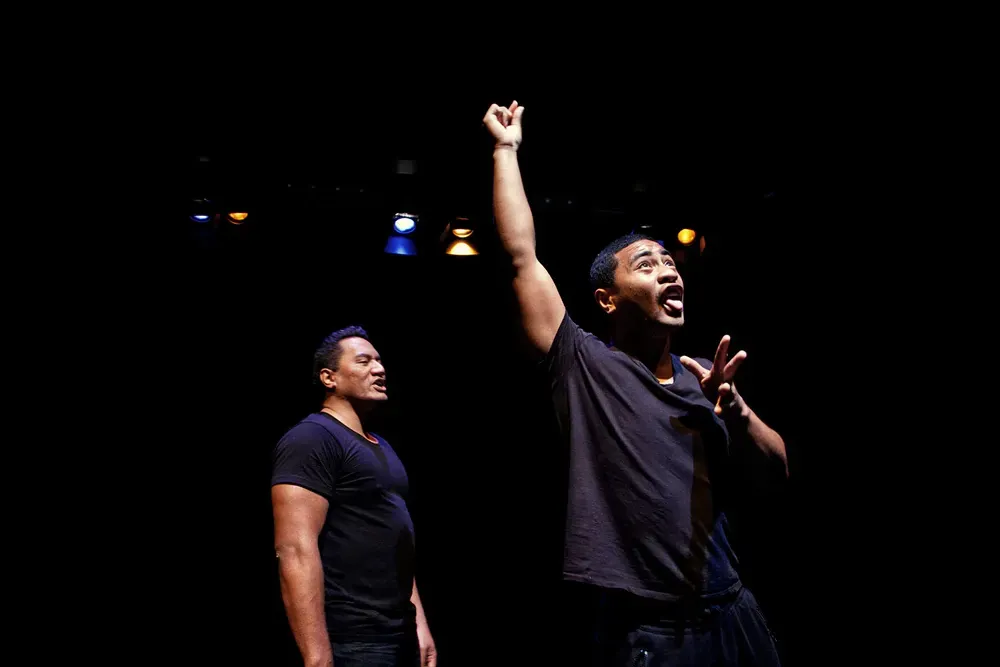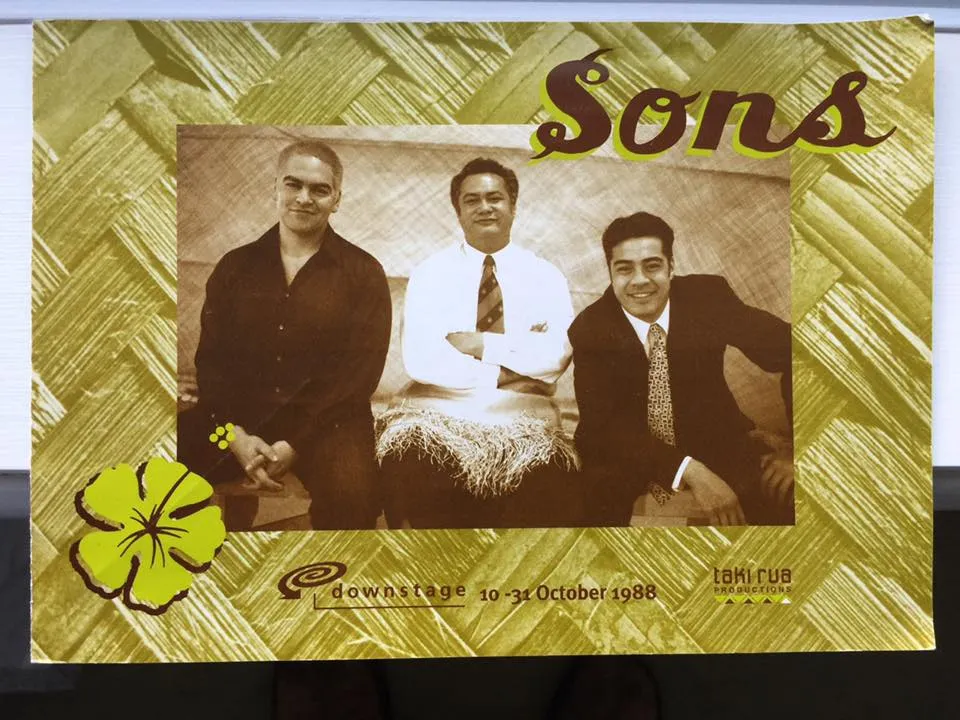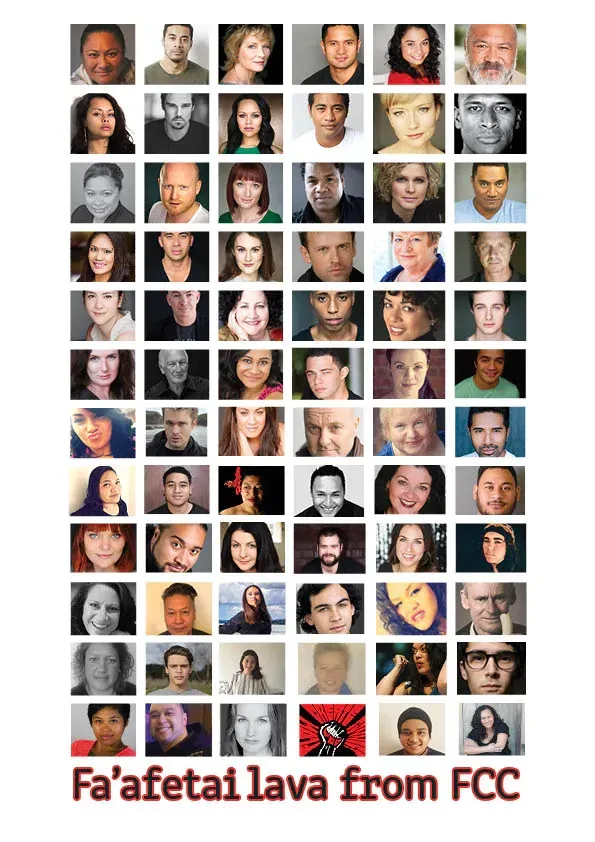Victor Rodger: Broadening the Spectrum
Written by

Victor Rodger is famously half-Samoan, half Palagi, born into a family with an absent father and a very present mother. He has spent his career writing into existence the voice of his experience and those like him. In 2015, Victor established a theatre movement, F.C.C., which aims to challenge the mainstream narrative of what it is to be Pacific Islander by bringing interesting new theatre to New Zealand and placing Pacific practitioners at the heart of those works. Victor spoke to The Big Idea about his journey and the challenges he sees for Pacific practitioners that led to F.C.C.'s creation.
“Me. Where am I? I’m not there. So I’ll write it.”
From our conversation, I could gather two moments that sparked the direction that Victor’s life has taken. The first was at high school when some friends made a juvenile 'How do you know when a Samoan's robbed your house...' joke and he didn’t get it. This shifted something in his identity. “[Before that] being Samoan for me was a fact, and in the last year of high school it became a feeling.” The second was when he sought his father’s recognition as his son. It was this personal journey of seeking to understand his relationship with his absent father that propelled Victor Rodger into the world of theatre. “I had a burning desire to make sense of that story.” First he tried to write it as a novel, then as a film script and finally it came out as a theatre piece, Sons. “I didn’t know [at the time] that theatre was on my horizon, but it just happened.”
In the lead up to writing Sons, Victor had sought refuge in literature to reach an understanding of his experience, and what he discovered was a complete void. There was nothing that he could turn to and identify with as someone of mixed race, raised white with a Pacific Island heritage. “Being Samoan isn’t just one thing. I’m on the spectrum of what it is to be a Samoan.” This provided the impetus for Victor to start writing. He thought, “Me. Where am I? I’m not there. So I’ll write it.” This has carved out the space that Victor continues to sit in and he says that people have appreciated what he has contributed to this space. “I’ve written my tortured mulatto self into existence so we’re there, we’re part of the spectrum.”
The spectrum he is talking about is the whole spectrum of what in means to be Samoan or Pacific Islander. Victor is constantly challenging stereotypes and limited perspectives on identity. He has found that this is particularly visible in the theatre industry where Pacific practitioners often find themselves cast for very limited roles. Victor sees many of his friends and colleagues who have an incredible range of skills but the work that they are given is very limited. “I don’t see a lot of my mates in the area getting shoulder tapped outside of the Pacific realm.”
Victor has grown into his identity and learned along the way. He says that his biggest failure was a play called Village People which came out of his residency in Hawaii in 2006. At the residency he was hanging out with two afakasi Samoan Americans. None of them had been raised fa’asamoa (the Samoan way) and they all had different relationships with their Samoan side. “The question I considered at that residency was, ‘what would it look like if the three of us went to Samoa?’ Then I saw August-Osage County on Broadway and had an attack of the August-Osage Counties.” He had been incredibly inspired by the play and wanted to make the Village People a Samoan version of this work. Victor laments, “basically I tried to do this play with lavalavas and it didn’t work... I wanted it to be something that it wasn’t.”
On reflection he sees that the cultural representation that he created in Village People was not on point and he has learned to be more careful around this. “My education in terms of being Samoan is always growing.” Where he has got to now in terms of walking the cultural line is an understanding that “I know what I know. And I know what I don’t know.” He says he’s fortunate to have great, knowledgeable friends around him he can reach out to when he is unsure. The other lesson he learned through this experience was to always follow his gut and this is now something that he always adheres to. “If I follow my gut, it generally points me in the right direction and when I follow my head it usually leads me astray.”
In 2015, Victor started a theatre movement called F.C.C. which stands for FLOW of energy; CREATING a platform for Pasefika practitioners; CONNECTING young practitioners and veterans. F.C.C. evolved off the back of the success of the play Girl on a Corner which was performed in Auckland in 2015. It was his first time working with an all Pacific cast at every level of the project (with one exception of the wardrobe person). The play had included a number of recent graduates from the Pacific Institute of Performing Arts (PIPA) and Victor felt “conscious of the young ones and wanted to create opportunities for them.” From this, he decided to create a platform for plays that haven’t been produced in New Zealand, that generally offer non-white practitioners a chance to take centre stage. Victor’s idea behind F.C.C. is "giving people an opportunity to deal with meaty, complex texts that they are generally not getting an opportunity to deal with in the mainstream.” He is essentially working to propel Pacific practitioners into new roles that expand people’s ideas of that spectrum of what it is to be Pacific Islander. “That is changing as more of us display how we are portrayed or are consulted in how we are portrayed … It’s a matter of not waiting for the mainstream to come to us, [we are] just getting up and doing.”
F.C.C. started out as an idea. For the first play-reading, Victor invited people along with the promise of sandwiches and chocolate, and they came! Now they do regular reading events that bring together respected theatre practitioners and recent graduates from PIPA. “Often people who have never worked together are working together at these readings. They get that experience of each other, even if it’s just for 5 hours.” He has found that when there are respected figures from the theatre world in the room, the young practitioners really “lift their game.” Since those first readings with sandwiches and chocolate on offer, F.C.C. has gone on to produce Club Paradiso, Puzzy and Wild Dogs Under My Skirt, and they now have funding from Creative NZ for the readings.
Victor maintains at the forefront of his mind the need to “bring Pacific characters to the foreground of the acton and them to drive the narrative.” This drive steers everything that he does. The road to achieving clarity around this direction has involved a previous career in journalism (including getting down to his last 10 quid in the tough streets of London) and a huge personal journey of understanding around his family and heritage. He admits he’s had times when he has fallen “victim to my own pretensions” and that he has been given a lot of opportunities and not always taken advantage of them. He has faced personal challenges, including “a pathological aversion to meeting deadlines”, a challenge that has always been at his heels. Through it all he has learned not to wait for things to change around him - that if you want something you just have to get up and start doing it, and most importantly of all, to always follow your gut.
F.C.C. will be presenting a reading of Barbeque, written by Robert O'Hara at 1pm on Saturday 29th April at Te Haukāinga, Lvl 1, 274 Taranaki St, Mt Cook, Wellington. These readings are free and open to the public to come along.
Follow works from F.C.C. theatre movement.

